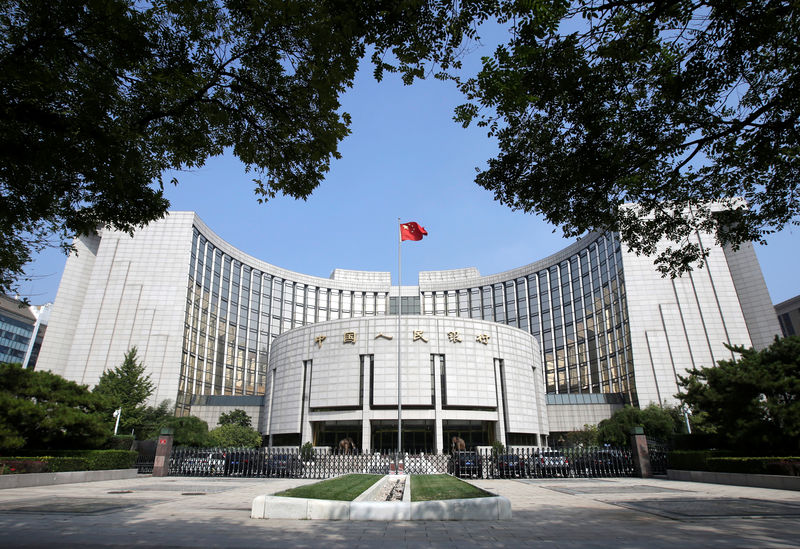 © Reuters. Headquarters of the PBOC, the central bank, is pictured in Beijing
© Reuters. Headquarters of the PBOC, the central bank, is pictured in BeijingBEIJING (Reuters) – China’s central bank pledged to maintain its “prudent and neutral” monetary policy and to use multiple tools to keep liquidity ample, as the world’s second-biggest economy comes under increasing pressure from a heated trade dispute with the United States.
On its website following a quarterly meeting of its monetary policy committee, the People’s Bank of China (PBOC) said on Saturday it will fine tune monetary policy in a pre-emptive way and control the pace of deleveraging.
The PBOC is expected to keep policy relatively loose to support a slowing economy as China faces increased headwinds from trade frictions with Washington.
The central bank said it would strike a balance between interest rate, exchange rate and international balance of payments.
The PBOC will continue to closely watch broad changes in international and domestic economic trends and guide reasonable growth in money supply, credit and total social financing.
“The prudent monetary policy will be kept neutral, neither too loose nor too tight,” it said.
The United States and China imposed fresh tariffs on each other’s goods on Monday as both sides showed no signs of backing down from an increasingly bitter trade dispute that is expected to hit global economic growth.
Investors and policy makers worry that the tariff row could further hurt China’s already slowing economy.
Economists have noted that disruptions in supply chains are likely to be more company specific, and will take time to be reflected in broad economic data and corporate earnings reports.
However, anecdotal evidence of mounting trade damage on both sides of the Pacific is on the rise.
Official and private manufacturing surveys for China show global demand for Chinese goods is clearly on the wane, with export orders shrinking for months in a row.
Policymakers have shifted their focus in recent months to improving credit conditions and shoring up business confidence.
The PBOC has cut banks’ reserve requirements three times this year to inject more liquidity, with further reductions widely expected.
But it has been struggling to channel more credit to small and private firms, which are vital for economic growth and job creation.
Fusion Media or anyone involved with Fusion Media will not accept any liability for loss or damage as a result of reliance on the information including data, quotes, charts and buy/sell signals contained within this website. Please be fully informed regarding the risks and costs associated with trading the financial markets, it is one of the riskiest investment forms possible.
Source: Investing.com




























